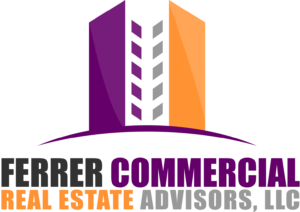Securing Optimal Space for your Industrial Business
When businesses require industrial space to operate and function effectively, it can be a frustrating and even perilous journey to find, compare, and negotiate the best deal for everyone involved.
If you’ve secured space and negotiated a commercial lease before, you may have learned this the hard way. If you don’t have commercial real estate experience, take it from me, you’ll want to learn from the mistakes of others.
In negotiating & managing hundreds of sales and leases for industrial business, I’ve learned that precious few business owners aspire to be commercial real estate experts. After all, they want to focus on what they do best whether it be manufacturing, logistics or warehousing.
With the burgeoning volume of information these days, business owners can barely keep up with their own businesses, let alone the constantly changing face of industrial real estate.
You can, however, make the best of your facility opportunities by following these seven tips to securing optimal space for your industrial business:
- Start early: There’s little worse than forcing far-reaching decisions into short time spans. Fortune favors those who give themselves proper time to get the facts they need to make wise choices in the process of evaluating space. Depending on the size and complexity of the operation, you might start a year or more ahead of time. For example it’s not uncommon for many large distribution users (100,000 SF and up) to begin the search 12 to 18 months before their current lease expiration. For smaller spaces (under 100,000 SF) 90 to 120 days is usually adequate.
- Read your current lease: Many times your lease will have a provision for you to give notice of your intent to vacate, for you to express a desire to renew, or to exercise any previously negotiated renewal options. Not monitoring your lease may cause you to nullify previously negotiated extension options and may cause you to lose a locked in rate. This could cause you to have to renegotiate your entire lease.
- Check your current rental rate: Consult a local real estate professional to see if you are paying a market rate. Make sure you identify the total cost, which is more than just your base rate. What are your taxes and insurance? Who is paying them? Is there a common area maintenance fee? What are your total occupancy costs? When you know these, you can begin to make accurate and valid comparisons to other available locations.
- Conduct a Lease Vs. Own Analysis: This is also something that a real estate professional can help you do in conjunction with your accountant. Is it more beneficial to lease your property or to own your own facility?
- Determine your ideal building specifications:You need to quantify things like: how much total usable square feet will you need to rent? Where do you want to be located in your market? How many loading docks will you need? How big of a truck court? Do you need additional exterior lay down area? Does the building need to be climate controlled? How many parking places? How many offices? What type of zoning will you need in order to be allowed to operate? It is important to consider all the variables which might impact your specific operation, especially lighting and power requirements. The most important thing is to rank these variables in the order of importance because chances are, unless you are having the building built specifically for you, it will not be easy to find a building that meets every single one of your specific needs. Conduct this walk through and analysis with your industrial real estate professional to make sure that you cover the bases.
- Be up to date on market conditions: When there’s plenty of space available in the market, you may be able to secure more favorable terms on items such as credit for build out in your new location. By being savvy to the market’s current level and sensible in your approach, you’re more likely to find the greatest overall value.
- Hire an Industrial Real Estate Agent: Most people believe they will save money by not hiring a real estate agent. Many people do not realize that agents typically get paid out of the transaction by the landlord not by the prospective tenant. The fee is already calculated into the cost of the transaction especially if the prospective property is listed on a multiple listing service (MLS). If the landlord has a qualified professional working hard in his or her best interest shouldn’t you have some one looking out for you? A top real estate professional will be worth several times their fee charged by helping you avoid an unfavorable lease or mishandling a sales transaction. Either of these scenarios could be potentially devastating to your company. Make sure you do your homework. Take the time to interview at least three industrial real estate agents and find the one that is right for you and your company.
Remember, securing optimal space for your industrial business can be daunting, so be proactive! Start early and follow these tips to help ensure you get the best location and agreement possible for you and your company.
Charleston Commercial Real Estate Agent
Mike Ferrer, CCIM, MCR is a Principal with Ferrer Commercial Real Estate Advisors, LLC He has written several white papers on the Charleston industrial real estate market. He can be reached via e-mail at Mike.Ferrer@FerrerCREA.com.
He has over 15 years of commercial real estate Brokerage and Development experience. With a focus on warehouses, manufacturing, office buildings, vacant land, and Investment Sales. He opened his own brokerage in 2015, and has completed over $225,000,000 in transactions throughout the Lowcountry.
Mike is the past president of the Commercial MLS for the state of South Carolina and has served on many other civic and philanthropic boards. Mike has a plethora of commercial real estate knowledge and established ties to the local community both statewide and stretching across the entire southeast.

